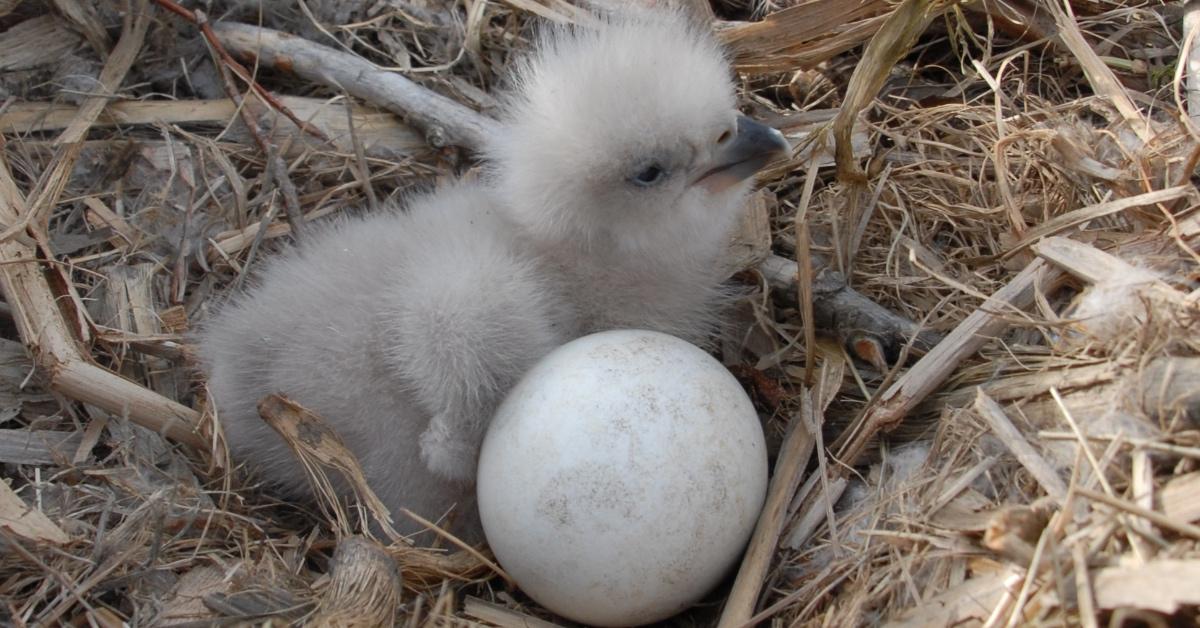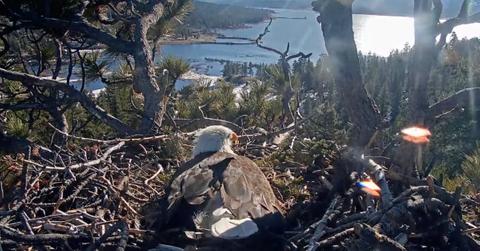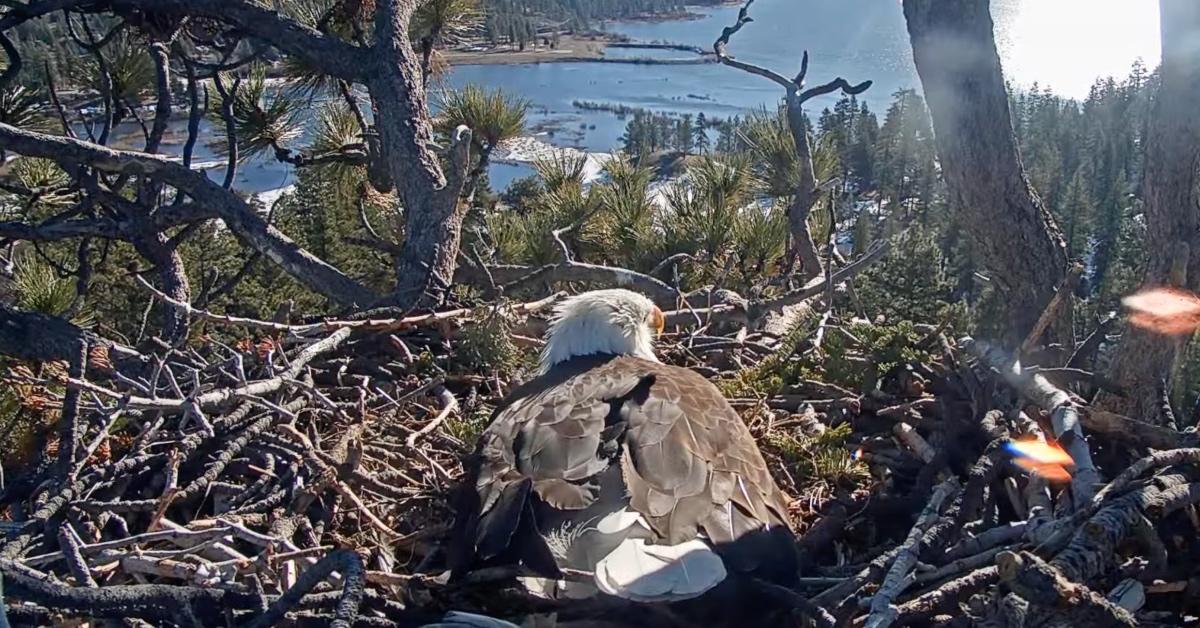Spectators On "Pip Watch" Concerned That No Bald Eagle Eggs Have Hatched Yet
Big Bear's famous bald eagle couple Jackie and Shadow are parents-to-be! The world is on "pip watch" for their three eggs, but some have concerns.
Updated March 12 2024, 9:27 a.m. ET
One of the most joyful aspects of co-existing with animals is getting to watch and celebrate when they have babies. Especially for protected species like bald eagles, new fluffy eaglets make things seem a little brighter.
Thanks to cameras set up by the nonprofit Friends of Big Bear Valley, viewers know that a pair of bald eagles, Jackie and Shadow, in Big Bear Valley, Calif., have been sitting on a clutch of three eggs for over a month. As such, viewers are on "pip watch" — a.k.a. an event that precedes eaglets hatching!
Keep reading for everything you need to know about what a "pip" is and how you can potentially witness the emergence of three new eaglets into the world.
Big Bear bald eagles Jackie and Shadow have been on "pip watch." However, their eggs might not hatch.
Spectators on "pip watch" have become concerned that the three eggs laid by Big Bear bald eagles Jackie and Shadow have not yet hatched. In an update on Facebook on March 11, 2024, the Friends of Big Bear Valley confirmed that the eggs in past years hatched much earlier.
"As of today, there has been no confirmed pips in any of the eggs. This is later than Jackie’s eggs have hatched in the past, so it is probably unlikely for them to hatch at this point…but as someone pointed out to me, miracles do happen."
The post added, "As to why the eggs have not hatched, we have no way of knowing. It could be environmental, such as temperatures, humidity percentages, oxygen levels at high altitude, etc. It could be biological with something just being off at the time the eggs were created."
According to East Tennessee State University, the typical eagle incubation period is 35 days, but four days before the eaglets hatch, they develop an "egg tooth" at the top of their bills.
Then, the eaglets will use the egg tooth to make a tiny hole in the egg's membrane from inside and take their first breath. After taking a breath, the eaglets will have enough strength to poke their way through the shell of the egg, indicating they are ready to emerge. The tiny hole in the shell is called a "pip," which is why viewers are so excited that the Big Bear eaglets are (finally!) on "pip watch."
The phenomena of watching eagle chicks hatching is not unusual; in 2019, Jackie and Shadow hatched two babies, per NBC Los Angeles, and in 2022, ABC 7 reports they hatched one eaglet named Spirit alongside another egg that never hatched.
After an egg is pipped, it can take one to three days for the eaglets to fully emerge. However, there is a chance viewers will be disappointed, as sometimes eggs don't hatch after they pip or are snatched by predators.
Bald eagles mate for life; according to Oregon Wild, they only find a new mate if theirs dies. They typically lay one to three eggs yearly, and their nests can weigh as much as one ton.
Jackie and Shadow have filled their nest with forest "fluff," per NBC Los Angeles, which is "organic material" the two eagles collected to make their nest more comfortable and "chick friendly" before the eaglets hatch.

What happens if a pipped egg doesn't hatch?
According to Mississippi State University, there are two reasons pipped eggs don't hatch: poor ventilation or improper humidity.
The eaglet's air requirement increases throughout incubation, especially just before hatching. However, vent openings are restricted closer to hatching to increase humidity, which can lead to the chick accidentally suffocating from a lack of ventilation.
Similarly, if the humidity during incubation is too high, the water evaporation that typically takes place during incubation doesn't happen, and the chick can drown inside the shell.
This article, originally published on March 1, 2024, has been updated.

